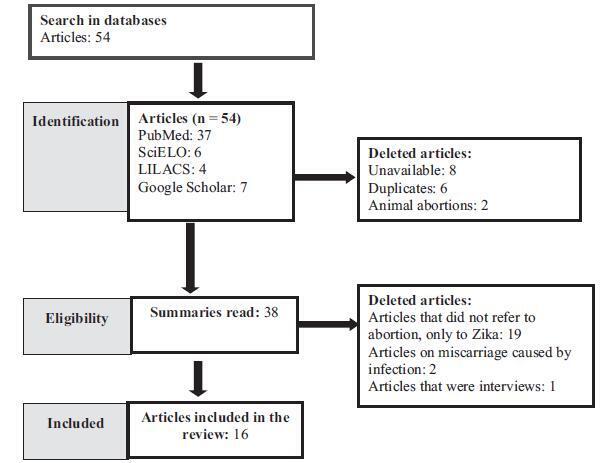Summary
Revista Brasileira de Ginecologia e Obstetrícia. 2022;44(12):1141-1158
03-24-2022
Surrogacy is the process in which a woman carries and delivers a baby to other person or couple, known as intended parents. When carriers are paid for surrogacy, this is known as commercial surrogacy. The objective of the present work is to review the legal, ethical, social, and cultural aspects of commercial surrogacy, as well as the current panorama worldwide.
This is a review of the literature published in the 21st century on commercial surrogacy.
A total of 248 articles were included as the core of the present review. The demand for surrogate treatments by women without uterus or with important uterine disorders, single men and same-sex male couples is constantly increasing worldwide. This reproductive treatment has important ethical dilemmas. In addition, legislation defers widely worldwide and is in constant change. Therefore, patients look more and more for treatments abroad, which can lead to important legal problems between countries with different laws. Commercial surrogacy is practiced in several countries, in most of which there is no specific legislation. Some countries have taken restrictive measures against this technique because of reports of exploitation of carriers.
Commercial surrogacy is a common practice, despite important ethical and legal dilemmas. As a consequence of diverse national legislations, patients frequently resort to international commercial surrogacy programs. As of today, there is no standard international legal context, and this practice remains largely unregulated.
Summary
Revista Brasileira de Ginecologia e Obstetrícia. 2020;42(11):746-751
12-21-2020
The aim of this study was to verify the existence of conscientious objection to comprehensive health care for the victim of sexual violence, as well as to understand the service structure of institutions authorized in the health care system for victims of sexual violence in the state of Minas Gerais.
This is a quantitative, cross-sectional, descriptive, and analytical field study aiming to collect data from institutions authorized to assist victims of sexual violence in the state. The instrument was handed in to the coordinators of these services.
It was found that 11% have no physician in service and that 31% had no training for this type of care. It was revealed that 85% of these institutions have already encountered patients wishing to have a legal abortion, but 83% of them have not had their request granted. There was a 60% presence of conscientious objection by the entire medical team, the main reason being religious (57%).
The assistance system is not prepared for comprehensive care for victims of sexual violence, especially in terms of legal abortions, with conscientious objection being the main obstacle. A functional referral and counter-referral system is needed to alleviate such a serious and evident problem. It is hoped that the research results will promote dialogues in the state that favor appropriate actions on legal abortion, and respect the medical professional, in case of conscientious objection.
Summary
Revista Brasileira de Ginecologia e Obstetrícia. 2018;40(9):527-533
09-01-2018
Assisted reproduction combines innovative technologies and new forms of procreation through gamete donation; however, it also leads to moral and ethical issues and to the wide application of referential bioethics. The objective of the present study was to understand the bioethical context of shared oocyte donation.
The present qualitative study used the Collective Subject Discourse methodology to interview donors and recipients in Brazil.
Donors suffer from infertility, and in vitro fertilization opens the possibility of having a child; however, the cost is high, and helping the recipient is more important than the financial cost. The recipients regret delaying motherhood; adopting a child is their last option, and they desire to feel the physical stages of pregnancy. The recipients find the rules unfair regarding the lack of an oocyte bank and the fact that the treatment must be performed in shared cycles; however, oocyte donation makes it possible to realize the common dream of motherhood.
The obtained data showed that the patients are suffering and frustrated due to infertility, and they realize that in vitro fertilization may be the treatment they need. These women believe that children are essential in the constitution of the family, and scientific advances bring about innovative technologies and new forms of family constitution, with repercussions in the social, economic, political, and family contexts that lead to bioethical questions in Postmodernity.
Summary
Revista Brasileira de Ginecologia e Obstetrícia. 2018;40(7):417-424
07-01-2018
The emergency in international public health caused by the Zika virus gave rise to the discussion about abortion in cases of congenital Zika virus syndrome (CZS). Therefore, we propose to carry out a bibliographic review on abortion in these cases. Five databases were searched using the following terms: abortion, miscarriage, and zika, with the interposition of the Boolean operator “AND.” In the selected literature, we found references to the lack of information concerning the risks and severity of CZS, to the great psychological distress suffered by pregnant women, and to the risk of unsafe abortions as a justification for abortion in cases of CZS. However, it is necessary to have available tests that could diagnose, in the first trimester of pregnancy, that the fetus has been affected by the virus, and that it may have important limitations, in order to subsidize the qualified discussion about abortion in these cases.
